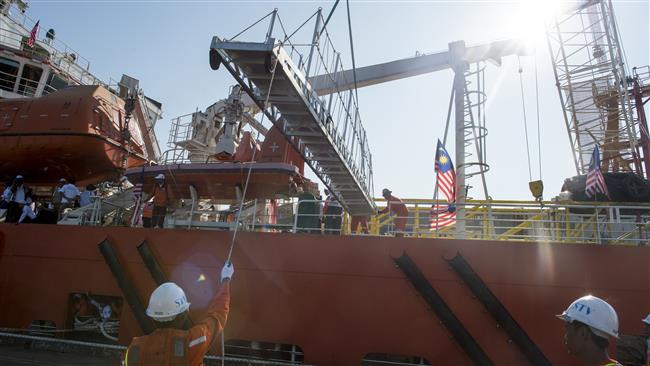(AhlulBayt News Agency) - Razali Ramli, from the 1Putera Club Malaysia, which helped organize the shipment along with a coalition of nongovernmental organizations, said that the 2,200-tonne aid shipment arrived at the port in Yangon on Thursday.
Organizers of the aid ship trust the Myanmar government to deliver the supplies as promised despite its record of discrimination, he noted.
"We have to respect Myanmar's sovereignty," Ramli said, adding, "We hand over the aid in good faith."
The "Food Flotilla for Myanmar" arrived in Myanmar amid an ongoing extensive crackdown on Rohingya Muslims in northwestern Rakhine state.
In January, Myanmar officials said they had permitted arrival of the vessel, but that it had to dock in Yangon instead of Sittwe, the capital of Rakhine.
Malaysia is an outspoken critic of Myanmar's treatment of the Rohingya. Last month, Malaysian Prime Minister Najib Razak denounced Myanmar for letting a harsh crackdown on the Muslim community continue.
On Thursday, anti-Rohingya protesters gathered at the port in Yangon, where the ship carrying aid for tens of thousands of the Rohingya minority had arrived, with dozens of extremist Buddhist monks holding placards and chanting slogans such as “No Rohingya."
"We want to let them know that we have no Rohingya here,” said a Buddhist monk named Thuseitta.
The developments came following a last week report by the UN that said security forces in the north of Myanmar had carried out mass killings and gang rapes while burning villages.
Two senior United Nations officials have recently disclosed the horrifying fact that more than 1,000 Rohingya Muslims might have been killed in Myanmar amid the army's intensified crackdown on members of the minority group.
The Rohingya have been fleeing Myanmar amid persecution at the hands of extremist Buddhists and the military. Since October 2016, Myanmar’s army has been carrying out a military crackdown in Rakhine state, where a large number of the Rohingya live.
Myanmar has faced international criticism for its treatment of the Rohingya, who are denied citizenship and live in conditions rights groups have compared to those of the blacks under the former apartheid regime in South Africa.
/106

